Faruk Orman, the man once jailed over the gangland hit of Victor Peirce, was “seriously wronged”.
Colourful Melbourne underworld figure Mick Gatto is a “gentleman and a friend”.
Drug runner and former horse trainer John Nikolic is a “tragic case”.
As for Lawyer X Nicola Gobbo, infamous for becoming a police informant during the Melbourne gangland war in the 2000s, Gold Coast lawyer Jason Murakami says: “I have nothing to say about her”.
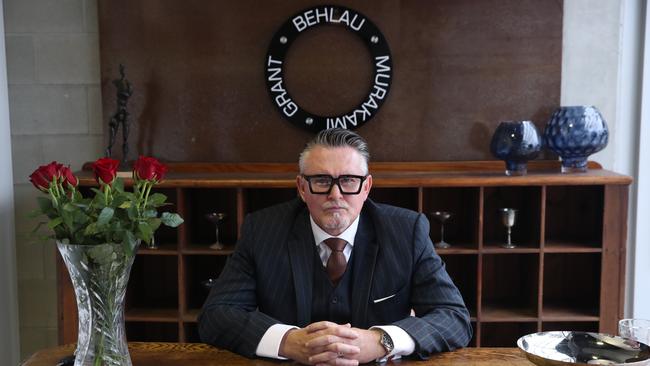
Murakami has represented a who’s who line-up of crooks, cops, politicians and business figures throughout his 25-plus years as a lawyer.
The journalist-turned-hotshot litigator knows how they feel because he too, has faced a grilling in the docks.
In 2015, Murakami and partner Ron Behlau made national headlines usually reserved for their clients.
The pair faced a Brisbane court over allegations they helped clients hide money from the federal government’s special financial intelligence unit.
It came after a two-year Crime and Corruption investigation.
The charges were laid bare – attempting to pervert the course of justice and conducting transactions to avoid reporting requirements.
In that moment, Murakami’s career was in suspended animation.
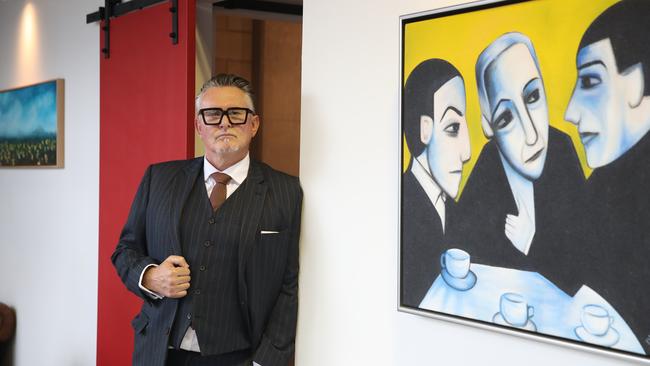
But rather than let it destroy everything he had worked to build, Murakami ironically continued to bury himself in pro bono work for his groundbreaking Griffith University Innocence Project, designed to educate young law students on wrongful conviction.
While facing his own legal battles, he also tackled a mountain of work for the landmark $30m Palm Island class action case, which resulted from the events surrounding the 2004 police custody death of Mulrunji Doomadgee and subsequent riots.
“It was in absolute irony. I found myself with a summons from the CCC in 2015 after having fought hundreds of wrongful conviction matters since 2001 for the Innocence Project,” Murakami says.
“Ron and I always knew that the truth would come out, that the prosecution had no basis whatsoever.
“I dedicated my life to the rule of law so it knocks around anyone who receives a summons alleging any wrongdoing.”
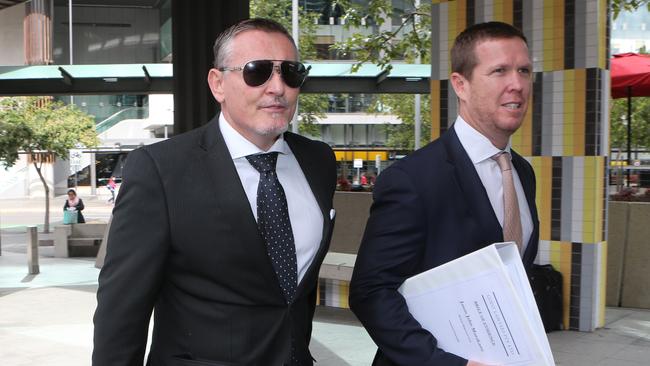
He was right. In 2017, once the CCC handed over their case to the Commonwealth Director of Public Prosecutions for their consideration, all charges were dropped against Murakami and Behlau.
The CCC’s conduct during this period is now the subject of a public enquiry by Tony Fitzgerald QC. Commissioner Alan McSporran QC, who presided over the investigation, has resigned his commission.
But for avid boxer Murakami, it didn’t take long to hit back and rebuild his reputation in the legal world.
In 2018, he established the top boutique litigation firm he still runs today, Behlau Murakami Grant, in Southport.
Looking back now, Murakami told the Bulletin the dark period of 2015 was “philosophically, the best thing to ever happen to my career”.
“You wouldn’t wish your worst enemy to go through what Ron and I went through, in terms of the public spotlight and the intensity of the prosecution, but there’s a lot of positives that have come out of it.
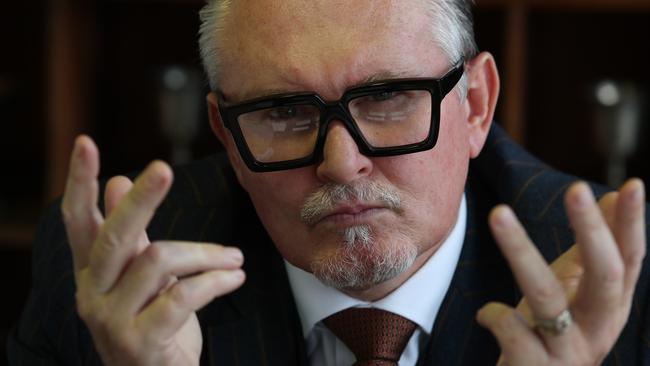
“I had to manage the tactics of my own matter, manage the public perception of my own matter, and manage and understand the absolute emotional rollercoaster and stress that individuals face when despots are coming after you without substance.”
Murakami says it led him on a path where he now “acts for a lot of people in this town who face those sort of investigations and prosecutions”.
“They always come to me and say ‘you faced it, went through it and won it. Can you do that for me now’.”
“Not only do we have the legal experience and tactics and the public perception skills and tactics – we now also have the emotional skills and tactics that only come from empathy because we’ve been through it ourselves.”
GCB: You made the transition from cadet journalist at the Gold Coast Bulletin to law student in the early 1990s. Was law something you always wanted to pursue and did you enjoy your time as a reporter?
JM: It was 1988, I was 18 and in competition with two great reporters – your father Greg Stolz and (journalist-turned-PR man) Steve Hunt. So it was tough (laughs). The problem was I was never a good writer, but I was as streetwise as they come.
The thing about journalism is it’s a machine that never stops churning. Most people don’t understand what it takes to get up day after day and do what journalists do.
You can screw your career on a daily basis and you’re only as good as your last yarn. Eventually I realised it wasn’t for me. But the real reason I left journalism harks back to my great-grandfather, whose internment in 1943 and his treatment by government despots was a catalyst to become a lawyer. I always had a healthy cynicism for bureaucrats and despots exercising their power without check.
There was also another key instance where I realised I wasn’t cut out for journalism. It would have been 1989 or 1990 and at the time, everyone in the country was looking for Christopher Skase. Because of my connections, I knew where he was. And one would have thought as a young ambitious journalist, it’s a scoop. But my view was there’s a privilege attached to the information I’ve been given and I’m not going to breach it. It could have been a Walkley (laughs).
GCB: Any highlights in your reporting career?
JM: I’ll never forget my first front page. I went into a medical centre pretending to be a football player and asked for anabolic steroids and was given a prescription.
GCB: Although we already touched on it earlier, why do you think the CCC targeted you specifically in 2015?
JM: If I was a despot out to go and charge people, would I target a legal aid lawyer, or those that keep getting their cases thrown out?
By the time 2015 came around I had won some pretty high-profile matters against the CCC (including) former Mayor David Power. I’m sure my face was on a whiteboard somewhere.
In 2004, former Gold Coast Mayor David Power was allegedly part of a voting block that involved a number of high-profile Gold Coasters. He was prosecuted but later acquitted and has since publicly denied any wrongdoing.
GCB: Tell me about your love for boxing?
JM: I love boxing and I’ve represented a lot of professional and amateur boxers. When I was at Aquinas we all boxed, I grew up with it and it went hand-in-hand with Rugby League.
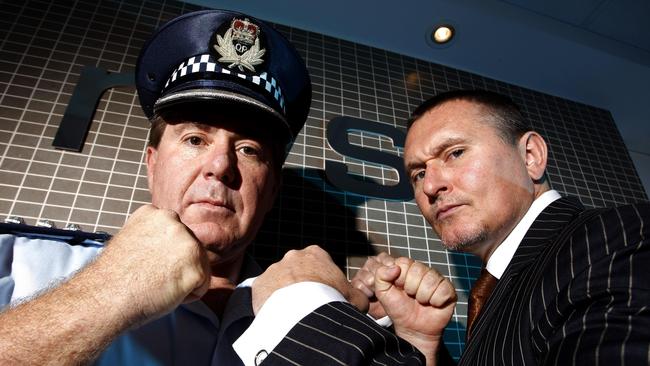
Over the years, I’ve continued to train. In 2012, I fought Queensland Police Inspector Darren Soppa. It was a draw and some say it was a complete and utter rip-off. But during that time, I've acted for a lot of boxers and associated with boxers.
GCB: Is the Gold Coast an ideal city to have a criminal law firm?
JM: I’m a sixth generation born and bred Gold Coaster so I’m quite protective about it.
I went to Sydney in 2014 after I was headhunted to take a position with high-profile class action firm Levitt Robinson Solicitors.
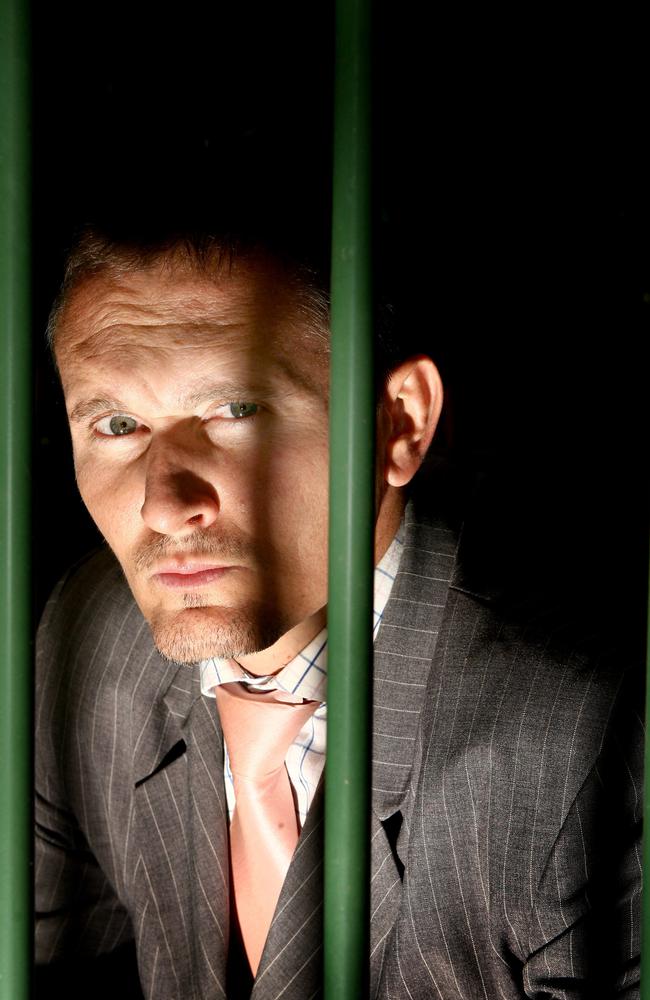
I went there believing I didn’t want to get to 45 years old and realise I hadn’t given a big city a go. My view was big cities would be a massive eye-opener. Interestingly enough I realised,
the firms I’d worked in on the Gold Coast were so much more advanced than in Sydney.
Ultimately, if you have a successful business on the Gold Coast, you will make it in any major city in Australia.
We are far more advanced, because we have to be to survive. Every business on the Gold Coast that has survived, you have to tip your hat to them. Because if you can survive here, you’ll make it anywhere.
GCB: You’ve represented an extraordinary line-up of clients over the years, many very high-profile. Can I throw a few names at you and if you could tell readers something they may not know about those cases?
JM: Go for it.
GCB: Emma Roberts-Smith (wife of Ben Roberts-Smith) in this year’s defamation proceedings brought by Ben Roberts-Smith against Channel 9 for allegations of war crimes and domestic violence and proceedings brought by Ben Roberts-Smith in the Federal Court Sydney alleging breaches of confidential information?
JM: This is a story of a war hero, a billionaire and a team of expensive lawyers on one team and a mother of two small children on the other who stood up to her estranged husband and spectacularly won.
GCB: Mick Gatto, Melbourne underworld identity?
JM: I’ve known and acted for Mick for 20 years. He’s a gentleman. For ‘colourful’ personalities, the public view is often very different to what they are actually like.
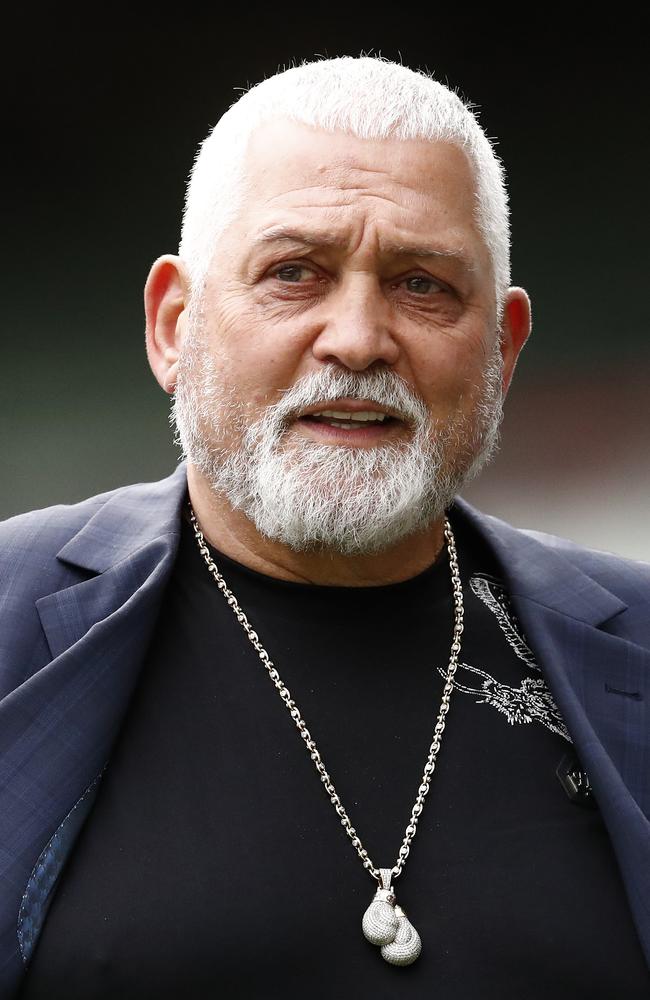
My dealings with Mick over the years have been nothing but positive. He’s a highly intelligent and respectful fellow.
GCB: Faruk Orman, Melbourne underworld identity?
JM: I acted for Orman, who was jailed for the 2002 murder of underworld figure Victor Peirce but was released in 2019 after his conviction was quashed in the wake of the Lawyer X scandal. Orman’s release was as a result of a dramatic failure of the rule of law.
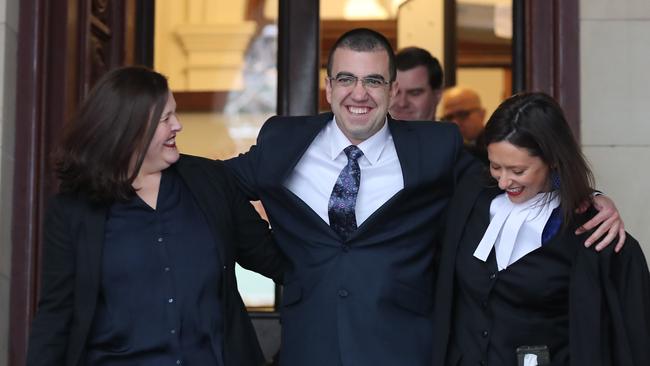
The system seriously wronged him. A defence lawyer’s only relationship with police should be the one they have with them when the police are in the witness box being cross-examined.
GCB: Lawyer X Nicola Gobbo, also known as informer 3838, infamous for becoming a police informant during the Melbourne gangland war in the 2000s?
I was involved in certain matters with her. I have nothing to say about her.
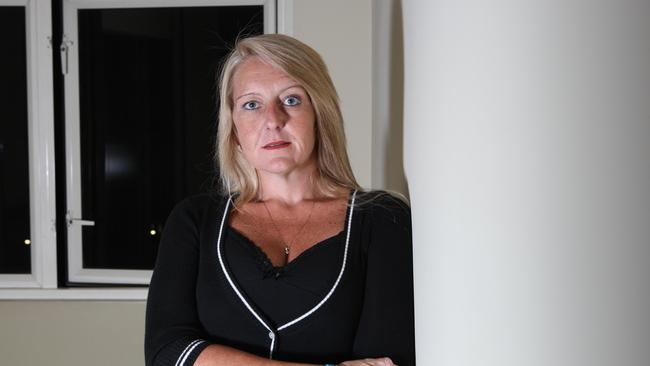
GCB: The Nikolic family? In 2019, John Nikolic was sentenced to 23 years in prison with a non-parole period of 18 years after being arrested when Fijian customs officers found quantities of cocaine, illicit drugs, two handguns and 112 rounds of ammunition aboard his luxury yacht, Shenanigans. You also represented Yvette Nikolic, who was found not guilty on all charges.
JM: Before the trial in Fiji in 2019 I had acted for the Nicolic family for over a decade. The Fiji judicial system is very different to ours and the prosecution can appeal a successful no case submission.
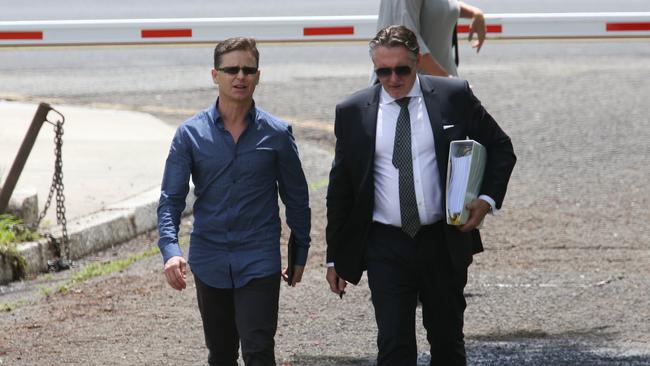
The prosecution is currently appealing the successful no case submission which saw Yvette Nikolic walk free from the Fiji trial so it would be inappropriate to comment any further.
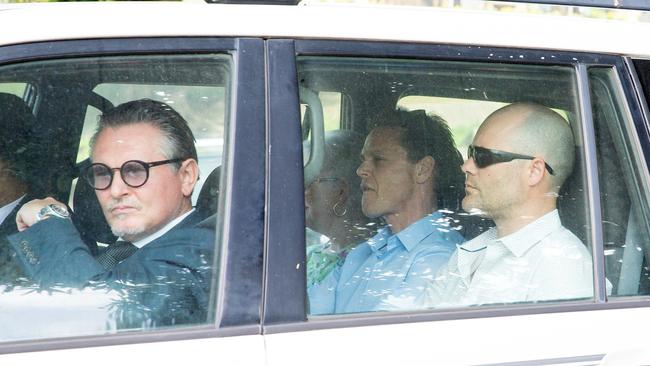
In relation to John Nikolic regardless of what he was found guilty of, his recent diagnosis and current deteriorating health is a very sad story that one can only feel for him and his family. It’s a sad story.
GCB: When John was diagnosed with Huntington’s disease, there seemed to be some sentiment out there of no mercy for John. How did that make you feel?
JM: The media can often be like grabbing a tiger by the tail (and it’s not knocking you). But there’s a romance period, when they build you up, and when you fall, they can sometimes publicise that downfall hard.
The family went through that romance period as some of the best horse trainers in the country. In my dealings with John over the course of a decade, he was only ever an absolute gentleman. I feel for him now. Now it’s a very tragic case. This is a son, a husband and father who is doing a very long sentence. I wouldn’t wish my worst enemy to go through it. As a humanist, it’s the only position I can take.
GCB: Jimmy Ozturk and the Craig Duffy saga? In 2017 long-time Hollywood Showgirls employee and colourful VIP Promotions Manager Jimmy Ozturk was sacked over allegedly taking a $500 tip from a client. Duffy faced the Fair Work Commission after Ozturk claimed he was unfairly dismissed from the company. The matter has been resolved and Ozturk is back at the establishment.
JM: The boys hey? (laughs). All I can say to you is there was a dispute, it came before the court and I can’t make any other comment than Jimmy’s back there working.
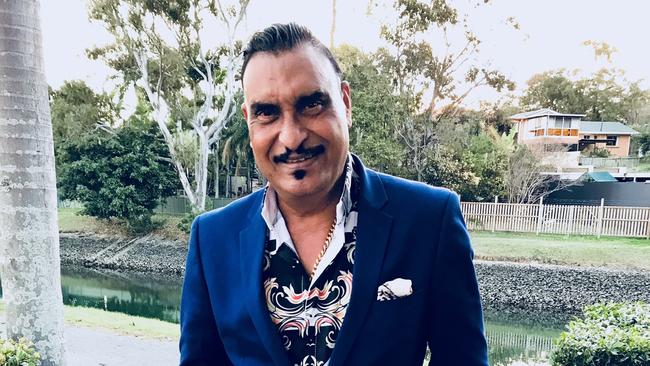
Generally, not specifically speaking, a lawyer can limit the emotion of things and work as a bridge builder.
GCB: Greg Bird? In 2009, Ex-NRL star Greg Bird was charged over the glassing of his girlfriend Katie Milligan. He was sentenced to a maximum of 16 months imprisonment. On appeal in November 2009, Bird was acquitted of the charges, after both he and his girlfriend gave evidence to support his claims.
JM: The matter had a profound effect on me. Greg Bird had been found guilty of offences arising out of a domestic violence incident which prematurely ended his NRL career. I was brought in to do the appeal with Bret Walker SC. The appeal was successful which gave Greg back his career. Unfortunately our system which deals with domestic violence is not infallible and can and does get it wrong. This was one of those times that it got it wrong but we were fortunately able to correct the miscarriage of justice.
GCB: You’ve also been involved in the world of film, executive producing Chris Nyst’s 2008 crime caper Crooked Business. Can you share any anecdotes from the production?
JM: It’s funny because Chris never wants to talk about it but I remember going to represent clients in court all day and I’d be getting non-stop calls from him about the colour of a Lamborghini. He was in full director mode (laughs). I’d be trying to give evidence, in say, an armed robbery trial and my phone would be vibrating in my pocket.
Another good story is Chris and I flew to Sydney and there was a young actor auditioning for the lead. Chris wasn’t that much of a fan but I thought this guy had gravitas. Chris ended up passing on him and it was Chris f***ing Hemsworth (laughs).
What’s interesting is we had to cast anyone and everyone in the film, including actual crooks. One day Chris asked me if we could bring a guy back in who auditioned well. I said to Chris, ‘he’s not coming back, he appeared in the district court this morning and got 12 months’.
GCB: You’ve been closer to criminals than arguably anyone else has? Do you think they are misunderstood?
JM: Over the years I’ve acted for what people might like to call ‘heavies’. Those heavy people would not rip off little old ladies or smack or assault an old digger.
But now a lot of criminals have lost a so-called ‘code’. Up is down, black is white and people don’t give a damn anymore. The reason certain films about crime have become cultural touchstones and are glamorised so much is because old school crooks actually lived by this code. There’s a correlation to that in the real world.
GCB: What’s the one case that has stuck with you the most over the years?
JM: It was a sexual assault case where the Innocence Project came in and assisted. My client, in his late 30s, was charged with the sexual assault of a minor. Always, in those sorts of matters, the subject matter is so abhorrent, it’s hard to talk to people about how the rule of law fits into the process.
I believed the evidence didn’t sustain the conviction. With the help of the Innocence Project, we helped uncover fresh evidence, and it went before the court of appeal. Eventually the conviction was quashed and he was released.
That outcome, despite the success of the court win - destroyed that family, destroyed his life, personally and professionally and destroyed his ties to his family.
It all comes back to why I chose to be a lawyer. Regardless of how abhorrent allegations can be, there has to be someone in society who follows the rule of law.
It’s safe to say you need to develop a thick skin to be in this game.

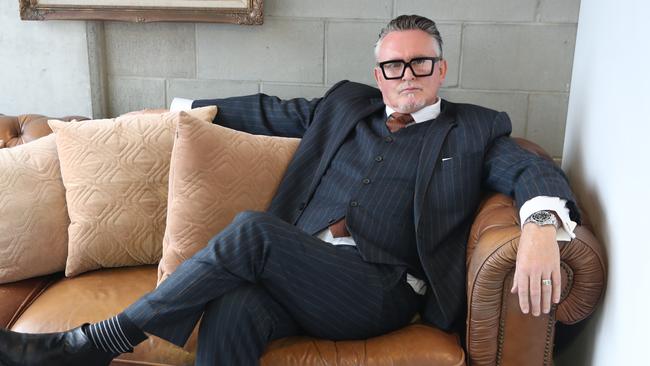
Add your comment to this story
To join the conversation, please log in. Don't have an account? Register
Join the conversation, you are commenting as Logout
OPINION: How GC can ‘maximise every opportunity’ ahead of 2032
The Gold Coast must capitalise on early investments in public transport, community venues, new tourism experiences, enhanced tertiary education and leading-edge technology, writes Tom Tate
‘Golden opportunity’: Why this is our most important two years
The Gold Coast faces its most important two years this century - and must extend light rail south of Burleigh and clarify its identity before the 2032 Games, a leading demographer says.